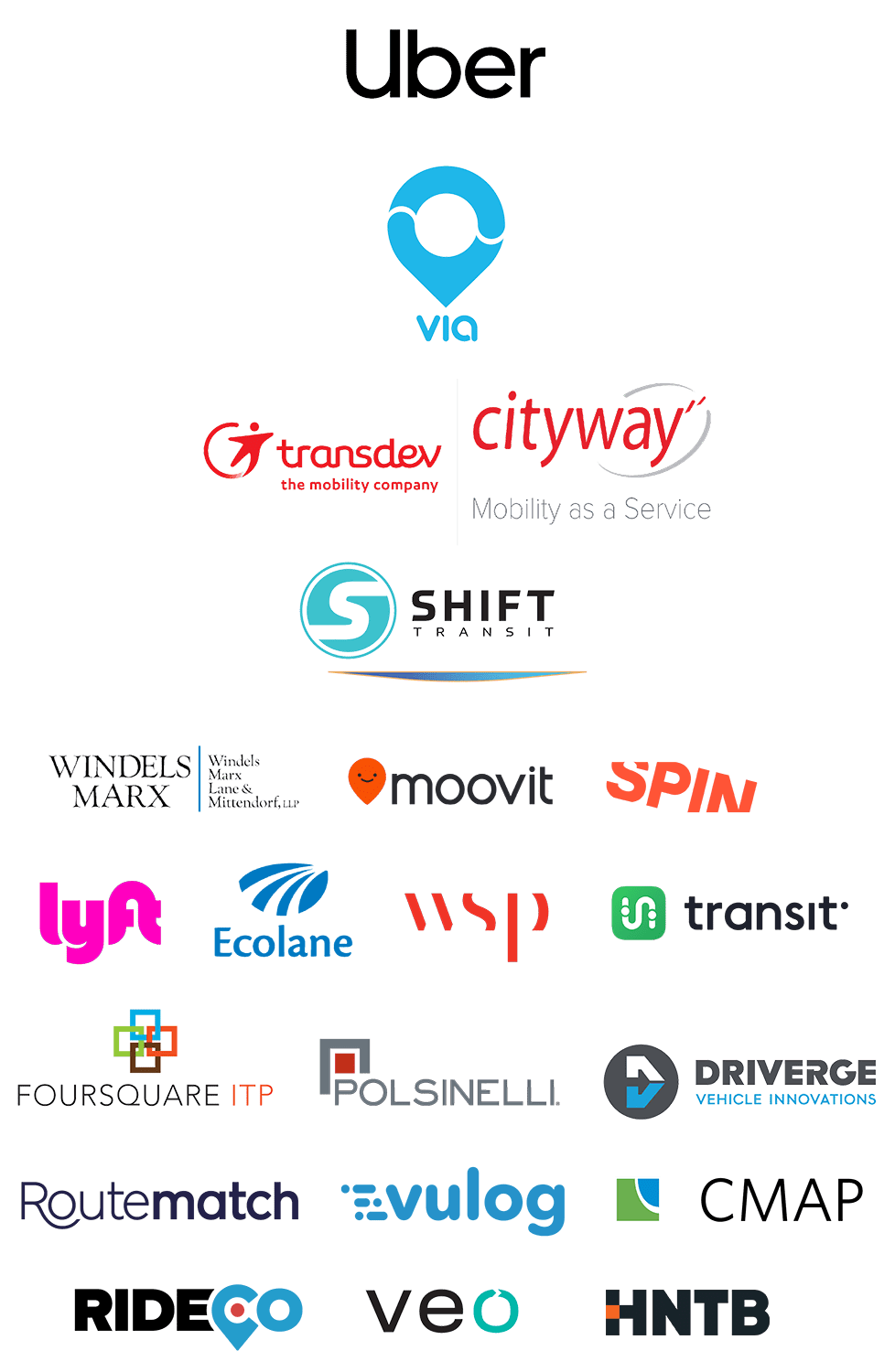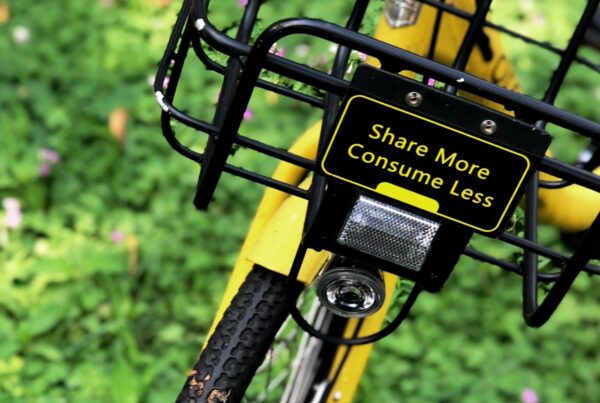Welcome to the Shared-Use Mobility Center’s weekly guide to the most impactful news, thought-provoking articles and innovative technologies that are shaping our transportation future. We believe in sharing information, just like sharing cars, bikes, and scooters, so if there’s anything additional you’d like to see, just drop us a line.
Announcements
Only 13 days left. Register now!
Featured Plenary Panel: May 5, 9:45 – 11:00 AM CT
Strategies for Transit and Shared Mobility In and Moving From a Pandemic Environment
The COVID-19 pandemic has challenged shared mobility services, but it has also resulted in increased awareness of the value and benefits of walking, biking, and sustainable modes. What short-term strategies and tactics should we implement to ensure a safe, accessible, equitable and environmentally sound transportation system for everyone in a pandemic environment and immediately after?
Panelists (In alphabetical order):

Beth Osborne
Director, Transportation for America

Lilly Shoup
Senior Director of Transportation Policy and Partnerships, Lyft

Gary Thomas
President and Executive Director, Dallas Area Rapid Transit

Jeffrey Tumlin
Executive Director, San Francisco Municipal Transportation Agency

David Zipper
Visiting Fellow at the Harvard Kennedy School’s Taubman Center
Equity Considerations in Transit Recovery: A Letter to Chicagoland Transit Leaders
Even before Chicago’s Shelter-in-Place order took effect on March 21, regional transit agencies had begun seeing a steep ridership decline. With the transit systems facing challenges on the fiscal, human resources, and safety fronts, it is crucial for agencies to have informed strategies for how they can move forward from the COVID-19 pandemic.
To inform this process in Chicagoland, the Active Transportation Alliance, SUMC, and a group of other advocacy and civic organizations collaborated to urge the governing boards of the region’s transit agencies to prioritize racial equity and include riders and residents in the decision-making for COVID-19 response and recovery.
A letter signed and sent to the boards of RTA, CTA, Metra, and Pace on April 15 outlines transit-supporting measures to establish an “equitable, clear, and transparent process” to engage both stakeholders and the public, and underscores that the transit system can be a driver of health and economic resilience.
“Transit is a public good that is essential to sustaining and reviving our regional economy – even if far fewer people are riding,” reads the letter. It is crucial for “low-income, often minority residents to get around on a daily basis.”
Read the letter here.
Clean Mobility Options Now Accepting Applications
We are pleased to announce that $50,000 vouchers are available for up to 20 California disadvantaged communities to identify urgent transportation needs in the coming months. Applications for Community Transportation Needs Assessment Vouchers will be accepted starting June 1st and will be awarded on a first-come, first-serve basis. The Shared-Use Mobility Center is providing technical assistance to support communities in applying for the funding and implementing the projects. More information can be found at cleanmobilityoptions.org.
Shared and Electric Mobility Powers On in California
While COVID-19 has reduced CO2 emissions, it is still critical that we focus on resilient and sustainable strategies for the future that can electrify and reduce single-occupancy vehicles. The following shared and electric mobility resources, put together through our work with the Hewlett Foundation, produced useful case studies and strategies that can support project planning and implementation. We invite you to explore these in the Learning Center along with a highly-informative Learning Module.
Take a look!
Ridehailing/Carsharing/Carpooling
Uber has announced two new delivery services, Direct and Connect, with the former offering deliveries from places like pharmacies and pet supply stores and the latter focusing on same-day courier services between users.
Lyft is leveraging its driver pool with select business partners in 11 US cities to help deliver groceries and other necessities to people in need due to the ongoing pandemic.
With China lifting lockdown measures and gradually returning to normal, the ridehailing giant Didi Chuxing hones in on Latin America to meet rising demands for home deliveries and offer discounted (or free) rides to local healthcare workers.
Hyrecar, the carsharing platform for ridehailing drivers, has new services that connect drivers to logistics/delivery jobs and provides access to information about work safety measures and financial relief options.
Partnerships and Programs
The Paradox Prize initiative has awarded three grants to transit agencies and nonprofits in Ohio to create innovative mobility solutions, such as transportation-specific workforce development and access to EV carsharing. Read about the initiative and the projects here.
Over 100 school buses in Austin, TX equipped with WiFi will give internet access to communities and apartment complexes in the area as part of a new program to help kids and families have equitable access to digital needs.
The transit authority in Contra Costa, CA and Transdev have partnered up to provide shuttles for essential workers as well as food, supplies, transportation to medical appointments, and general amenities to the city’s residents.
Marin County, CA transit agencies will receive $46 million in relief funds from the federal government to offset recent revenue drops from the ongoing coronavirus crisis.
Bikesharing and Micromobility
Meet Gotcha TO GO, a new mobility service that offers electric scooters and e-bikes to restaurants, grocery stores, and other local businesses for $15 per day to assist in deliveries.
Bicycling advocate and The Brown Bike Girl consultant Courtney Williams lays out five tips for biking during a pandemic and what you can do to make your two-wheel mobility experience safe and smooth while helping to “flatten the curve”.
Private micromobility companies are scrambling in cities to stay afloat, even as people shift their transportation habits to bike and walk more. Should they receive similar subsidies to what transit agencies are getting to keep the first/last mile dream alive?
Portland’s Biketown bikeshare service is cheaper than ever now with the city slashing prices to just 1 cent per minute (yes you read that right) for pay-as-you-go riding through April 30th to promote safe, social-distanced travel.
Transit
With transit employees facing life-threatening hazards as they help run our cities’ transportation systems, some officials, workers, and unions are calling for complete shutdowns of bus and train operations to quell the spread of COVID-19.
Transit agencies are struggling around the world as ridership slinks to an all-time low due to coronavirus, and Chicago’s Metra is no exception with an almost-certain ridership loss of 97% in April and a $500 million budget gap over the next two years.
Dallas’ DART has started to deliver meals to students in the region along with special care packages to seniors as people shelter in place during the pandemic.
Pedestrian Observations perfectly breaks down the inaccuracies of the recent MIT study on the spread of COVID-19 in New York and how its proposed correlation to the city’s transit network is flawed.
Technology
On April 14, autonomous tech company Sensible 4 launched a fleet of self-driving shuttles in Helsinki to test “real-world situations” on public roads as part of a new pilot program.
Apple has released anonymized data on driving, walking and transit trends from its Maps app available for cities, countries, and regions interested in various mobility trends for COVID-19 response efforts.
Navigational tech company Waze has added special COVID-19 data to its app that includes information about local coronavirus testing centers, food delivery and nearby pantry options, and marked road closures.
Essential workers looking for various transportation services in their area can now find operators in over 105 cities and 29 countries through a new platform called WeAllMove, launched by Wunder Mobility, the World Economic Forum, and other global partners.
Urban Sustainability
In a bid to reclaim space for cyclists and pedestrians during the nation’s lockdown, New Zealand has become the first country to officially fund tactical urbanism through government policy, helping people maintain more space while pushing for sustainable transportation.
Taking matters into their own hands, residents in DC waiting for city-administered solutions are making more space for pedestrians with traffic cones and sidewalk chalk as part of the grassroots #WidenDCSidewalks initiative.
Check out Mass Transit Magazine’s deep dive into the proliferation of Low Emission Zones and vehicle bans around Europe and how these policies are leading the charge in sustainable actions for fighting climate change and congestion, while reclaiming public space for the people.
Dense, compact, and mixed-use neighborhoods create resiliency that not only allows people to access healthcare, food, and other basic services without a car, but also promotes energy-efficient supply chains while increasing public health with lowered emissions.
Requests for Proposals, Inquiries, and Information
Federal Transit Administration (FTA) Notice of Funding Opportunity Extended: The FTA’s Accelerating Innovative Mobility Challenge Grants have been extended until May 18, 2020. These funds support innovation throughout the transit industry by promoting forward-thinking approaches to improve transit system design, service, and financing. Learn more and apply here.
COVID-19 Mobility Solutions Grant
PlanetM
The State of Michigan
Deadline: April 24, 2020
RFP: Intelligent Transportation Systems
Missoula Urban Transportation District (Mountain Line)
Missoula, MO
Deadline: April 24, 2020
RFP: Paratransit Demand Response Services
Ann Arbor Area Transportation Authority Proposal # 2020-15
Deadline: April 30, 2020
RFP: Request for Proposals for Paratransit Services
Green Mountain Transit Authority
St. Albans, VT
Deadline: June 17, 2020
Email Matt Kimball for RFP at mkimball@ridegmt.com
We’d like to thank the following sponsors for their support of the 2020 National Shared Mobility Summit.
 Did someone forward this to you? You can sign up for our newsletter here.
Did someone forward this to you? You can sign up for our newsletter here.






